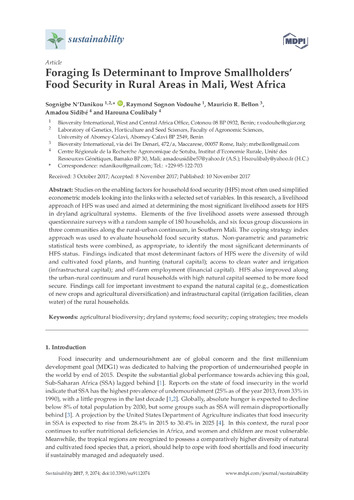Foraging is determinant to improve smallholders’ food security in rural areas in Mali, West Africa
Studies on the enabling factors for household food security (HFS) most often used simplified econometric models looking into the links with a selected set of variables. In this research, a livelihood approach of HFS was used and aimed at determining the most significant livelihood assets for HFS in dryland agricultural systems. Elements of the five livelihood assets were assessed through questionnaire surveys with a random sample of 180 households, and six focus group discussions in three communities along the rural-urban continuum, in Southern Mali. The coping strategy index approach was used to evaluate household food security status. Non-parametric and parametric statistical tests were combined, as appropriate, to identify the most significant determinants of HFS status. Findings indicated that most determinant factors of HFS were the diversity of wild and cultivated food plants, and hunting (natural capital); access to clean water and irrigation (infrastructural capital); and off-farm employment (financial capital). HFS also improved along the urban-rural continuum and rural households with high natural capital seemed to be more food secure. Findings call for important investment to expand the natural capital (e.g., domestication of new crops and agricultural diversification) and infrastructural capital (irrigation facilities, clean water) of the rural households.

